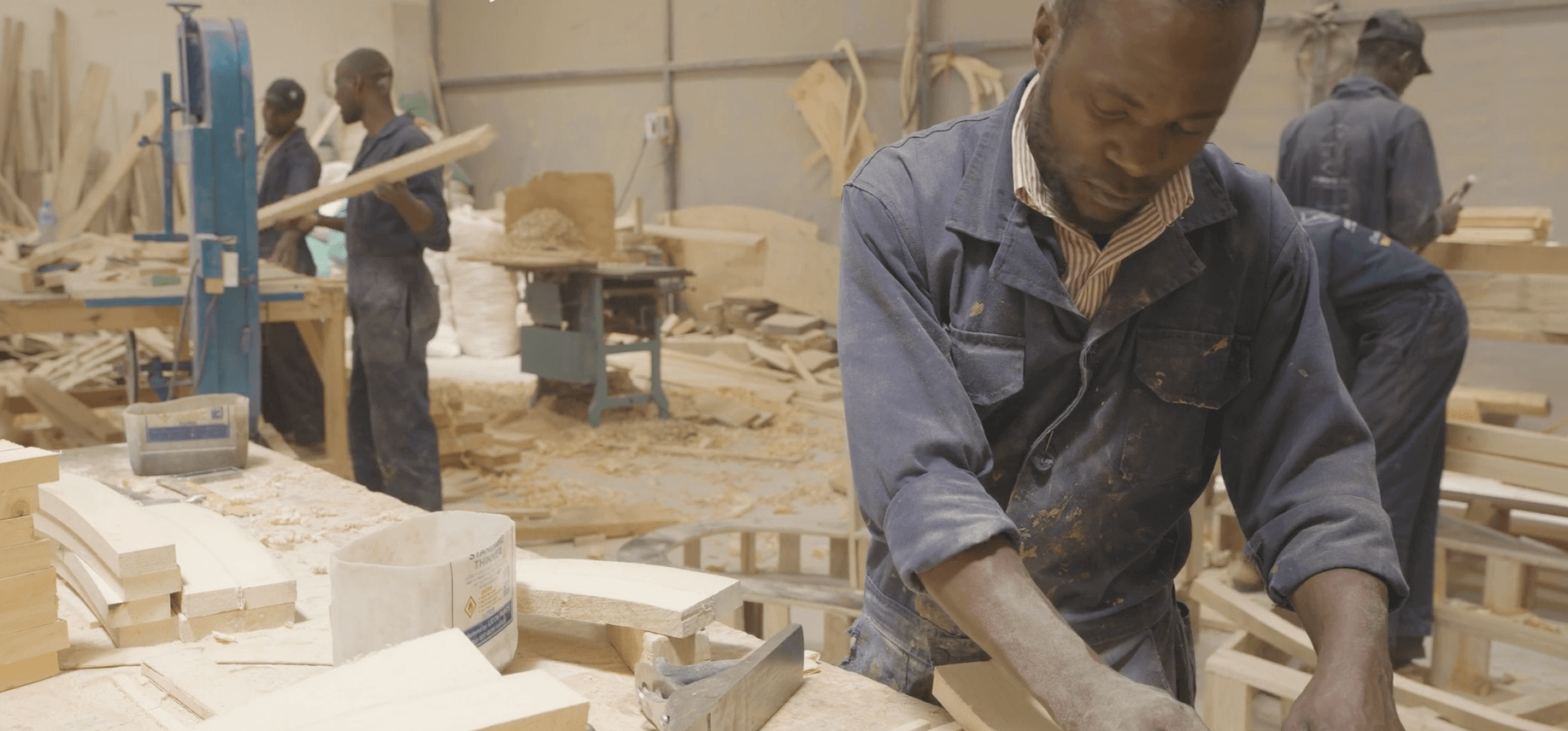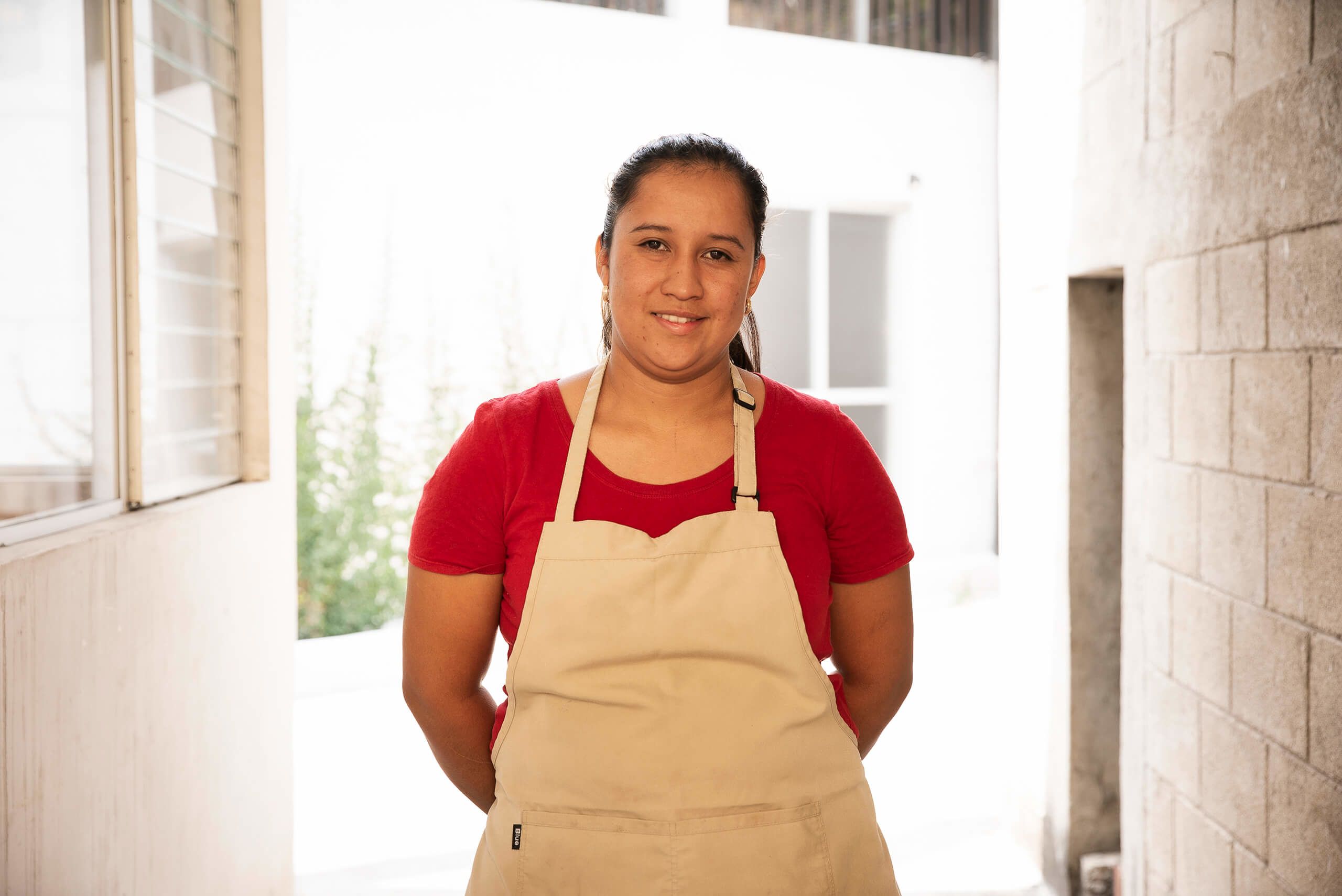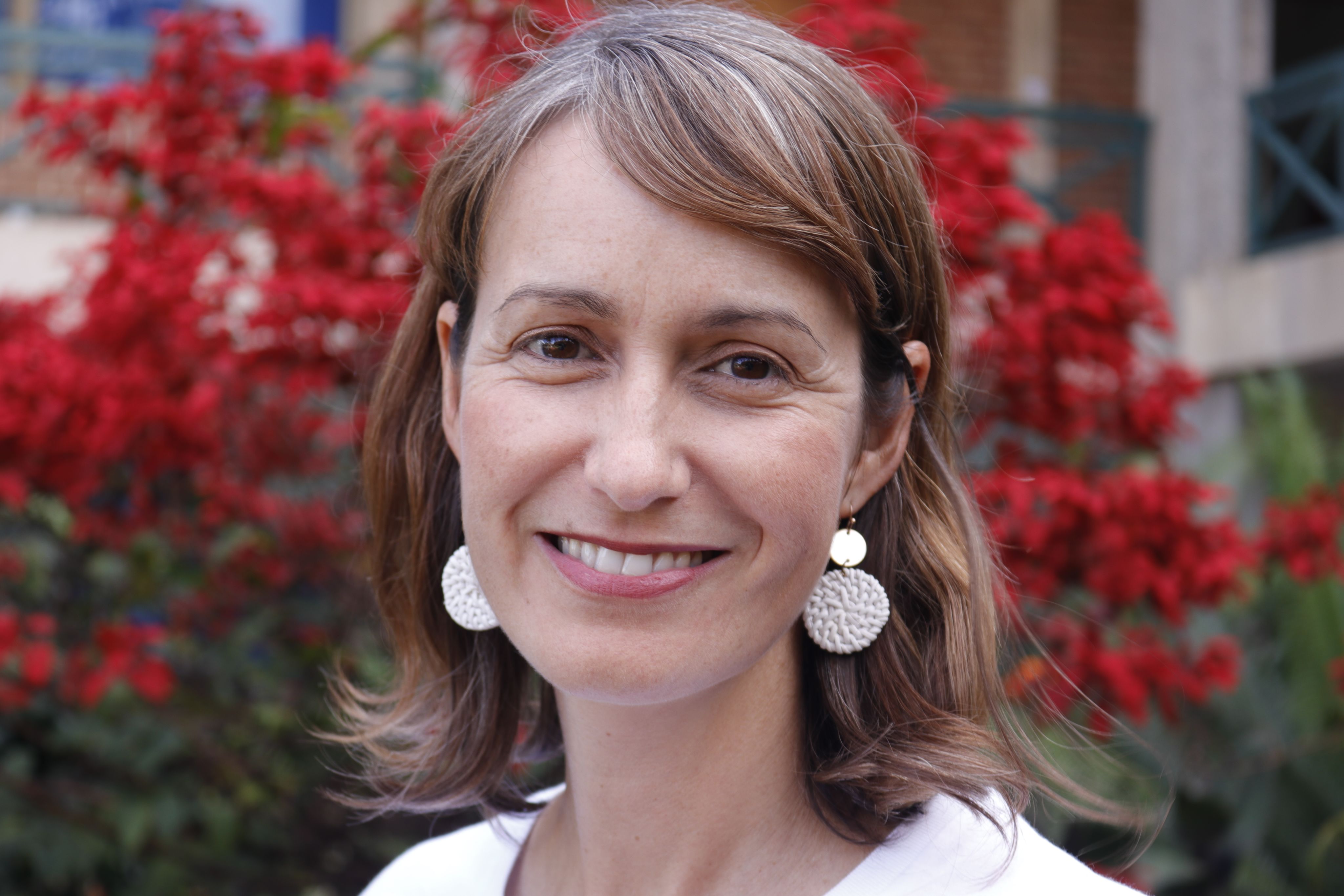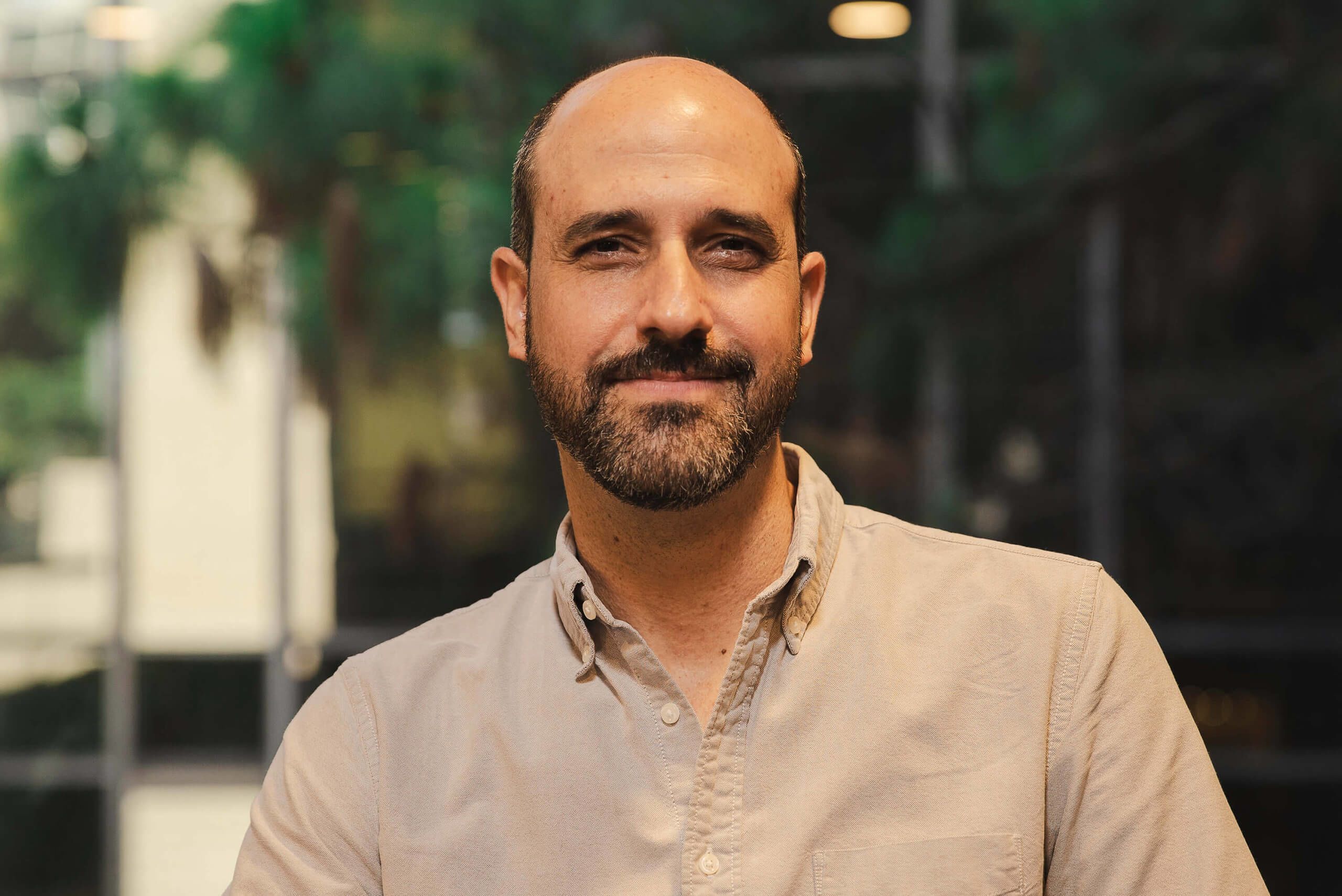PARTNER STORY
Evidence-based impact in Africa

Interview with Rebecca Harrison, CEO of the African Management Institute
The African Management Institute (AMI) was founded in 2014 by Jonathan Cook, former director of South Africa’s Gordon Institute of Business Science, and Rebecca Harrison, a foreign correspondent and social entrepreneur. AMI first received funding from Argidius in 2013 and became a strategic partner in 2018. We asked Rebecca to share some highlights of the journey so far.
How did the relationship with Argidius begin?
Rebecca Harrison: Argidius first came on board to support our work with slightly larger businesses working on management and leadership skills. That was ten years ago, at a time when we were developing this quite unique, evidence-based approach to supporting entrepreneurs.
Argidius is known for its commitment to evidence, research and monitoring impact with a very structured, intentional approach around measurement. So when we met Argidius, we realised we were aligned about applying an evidence-based approach to building businesses. What started as a fairly small engagement then grew over the years until we became a strategic partner.
They then supported us to scale up our ‘Grow Your Business’ flagship programme across Africa, and to test it through a randomised controlled trial, which is the gold standard of impact measurement. We’re doing that with the Massachusetts Institute of Technology to really understand the impact of supporting businesses in terms of business growth, job creation and livelihood improvement.
What do you think about Argidius?
Rebecca Harrison: They've been a great funder and partner for us, and not just a funder. Argidius has focused on building the evidence base, advocating for the sector and pushing partners to take impact measurements seriously. Not just reporting for the sake of reporting to a donor or to a partner, but reporting to better understand what in our methodology works, so we can be more efficient, more effective, and more impactful.
Argidius has really influenced the way we, at AMI, think about impact and tracking our impact, learning from it and continuing to iterate, and repeat, over and over. They pushed us to do this randomised controlled trial, which, I won't lie, has not been easy. But doing the trial has forced us to think about, for example, how to recruit entrepreneurs at scale, and now we're probably one of the largest scale providers across Africa. They've pushed us to take evidence very, very seriously and to embed that into everything that we do.
The other unique thing about Argidius is that they really think about building the organisation and the team. So they encouraged us not just to run programming and deliver impact results, as important as that is, but to think about how to build and develop our business for the long term.
They've also been very helpful in introducing us to other potential partners in the sector, advocating for us, and advocating for the sector more broadly. So I feel like they punch above their weight in terms of impact, not just funding direct programming through partners, but really influencing the whole ecosystem.
How has this influenced the wider enterprise development sector?
Rebecca Harrison: Argidius has been transformational for the entrepreneur support organisation ecosystem in Africa, I believe, because they came in and they insisted that all of their grantees and partners had to provide actual business outcome data.
It was controversial. I don't know if anyone was doing that before they came along. We all kind of threw our toys out of the pram and found it very difficult.
Then we realised they were pretty serious - that they needed us to do it. And so we started doing it at a much deeper level, and more rigorously than we'd been doing it before.
We had insights that we would never have gotten before, and we would not have scaled to the level that we've scaled. I don't think we would have measured our impacts as rigorously as we have if we hadn't partnered with Argidius. I think that can be said for, probably, all of their partners. And given that they fund a lot of the partners in this space, that's had a really significant impact on the sector.
PARTNER STORY
Institution building in Central America

Launching a small business is tough anywhere in the world,’ says Alterna CEO and founder, Daniel Buchbinder.
Daniel Buchbinder
Daniel Buchbinder
“But in emerging economies, like in Central America, it’s even tougher. There isn’t a very strong enabling environment or enough local resources for enterprise development. It’s very different to operating in more dynamic and better funded ecosystems such as in North America or Asia.”
Argidius executive director, Nicholas Colloff, recalls, “I got a strong sense from Alterna, when they first approached us for funding in 2014, that they were doing something interesting and unusual, that they’d started off well and we should give them a go. At first we gave them a one-year grant to see how things went, then topped that up for a second year.”
In 2019, with five years’ good results in Guatemala clearly evident and with a proper governance board in place, Alterna was invited by Argidius to become a strategic partner, hence deepening the relationship and opening up the opportunity to offer core funding.
Nicholas explains, “A strategic partnership, for Argidius means ‘how do we help a partner organisation go to the next level of its own development and life?’ We ask partners who have proved themselves and their approach, ‘what is it you need to do in order to be a better organisation?’ and then support that with core funding.”
The new core funding enabled Alterna to improve pay and remuneration for all its staff, and to take on new team members, as well as to put proper HR systems in place to help with staff retention.
Daniel says, “When we first met Argidius we had a handful of staff. Now we're almost seventy. We were working only in Guatemala; now we work in Central America, the Caribbean and in Mexico. Our reach and impact are commensurately higher."
Significantly, the core funding and the improvements Alterna made with it, encouraged other funding partners to come forward, including IDB, the Inter-American Development Bank.
Daniel says “The stars aligned – or as you might more realistically say, Argidius and Alterna worked together to align the stars – so that we could leverage interest from other donors for a pioneering impact investment vehicle, which Alterna wanted to set up to fill a critical financing gap. It’s a small-ticket instrument targeted to the “missing middle” of entrepreneurs, whose needs are bigger than microfinance, but who find it hard to access larger traditional funds.
Daniel says: “My experience is that ‘trust’ is at the core of Argidius’ values and they also have a healthy level of organisational self-confidence – in what they do, why they do it, how they do it. They are also willing to learn from experience when things don’t go exactly how they were supposed to. I think they are able to cast such trust to their partners. Of course, trust has to be earned and Argidius makes you earn it. It takes time. But after due diligence has been done and once transparent reporting and results are being demonstrated there's no need to be breathing down partners’ necks.”
Alterna has evolved over the course of this ten year partnership with Argidius from cultivating their first 20 social enterprises in the highlands of Guatemala, to having now supported over 5,000 impact and inclusion-driven enterprises that have generated over $350M in incremental sales, created over 16,000 jobs, and contributed to 15 of the 17 sustainable development goals.
Argidius has been instrumental in our professionalisation journey, in strengthening our monitoring and evaluation practice, in solidifying our governance, and envisioning a sustainable funding pathway.
Nicholas concludes, “All Alterna’s trajectories – country expansion, numbers of businesses worked with and now a commercial investment vehicle – have gone very well, and really show what is possible. They started out as good people with values, with inspiration, with lots of energy, trying out things and learning about them. Now, they've become a professional organisation, but along the way they've kept the values and inspiration, the high energy levels and a consistent willingness to learn, including when to stay with it and when to change in response to that learning. There’s no doubt in my mind that more and better results and impact come from giving the right organisations space to grow, develop and improve over time.”


